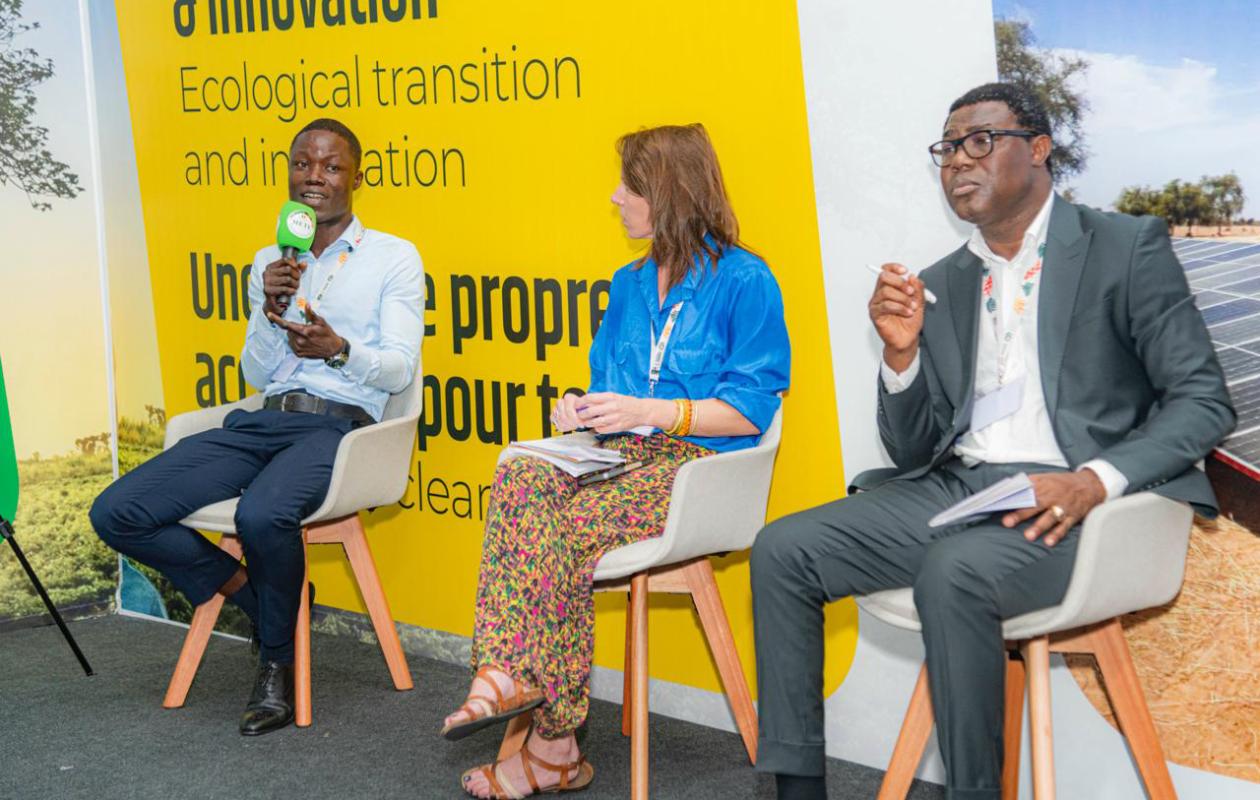
COP30 : L'ADM mobilise autour de la gouvernance et de la finance climatique décentralisée au service des territoires sénégalais
The Municipal Development Agency (ADM) is participating with the Senegalese delegation, led by the Ministry of the Environment and Ecological Transition, in the 30th Conference of the Parties on Climate Change (COP 30), which is being held from November 11 to 22, 2025, in Belém, Brazil. As part of its activities at the Senegalese pavilion, the Agency organized a high-level panel on Monday, November 17, 2025, focusing on local climate governance and innovative financing. This meeting brought together national and international experts to discuss the challenges and prospects of financing climate action at the local level.
Local authorities, the core target of climate resilience
Organized in a context of reassessment of national climate commitments (NDCs) and accelerated implementation of the Paris Agreement, the COP represents a unique opportunity for governments, local authorities, civil society organizations, the private sector and international financial institutions to renew their efforts, intensify concrete actions and strengthen cooperation for a more resilient future.
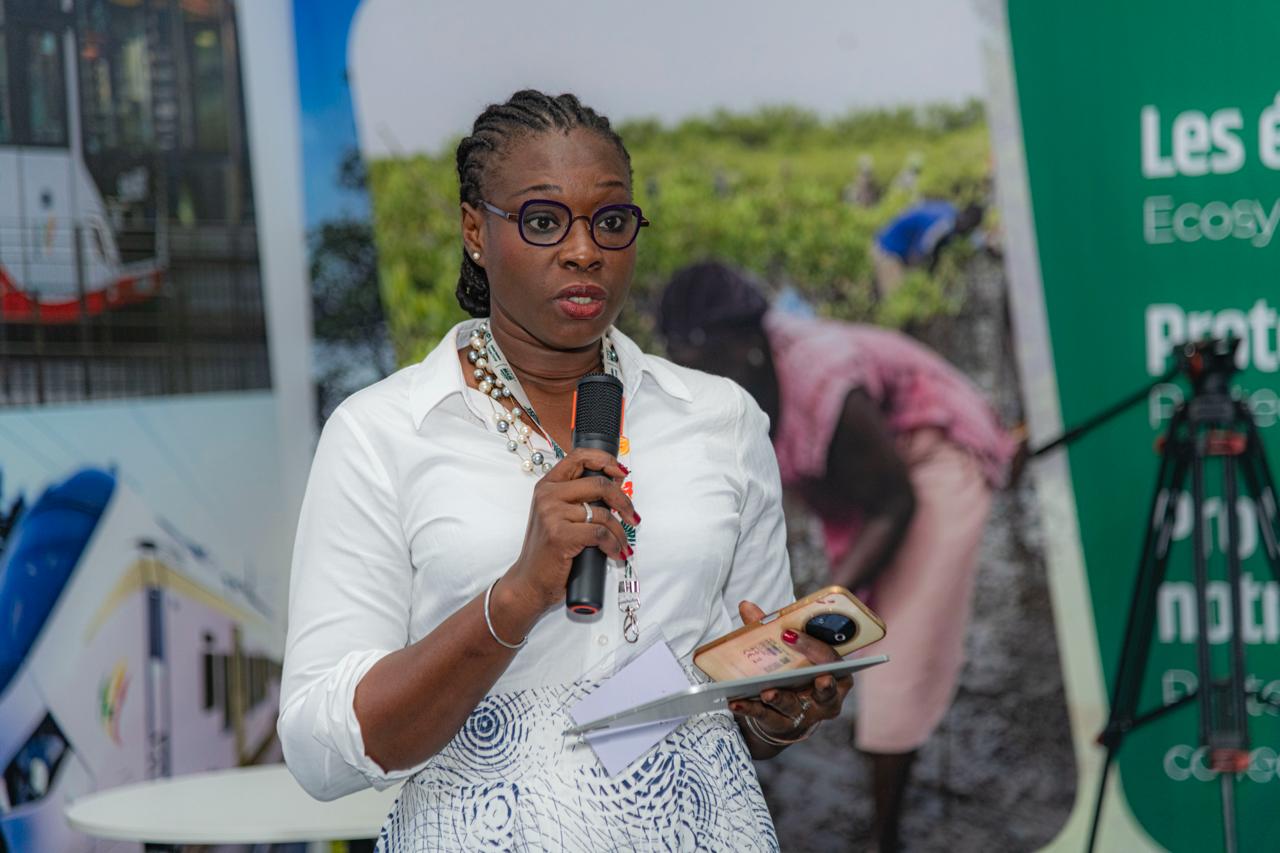
In this global context, the Municipal Development Agency (ADM) is actively engaged as a strategic player in local development and climate transition at the territorial level. As an organization responsible for promoting sustainable urban development and providing technical and financial support to local authorities, the ADM places climate resilience at the heart of its work.
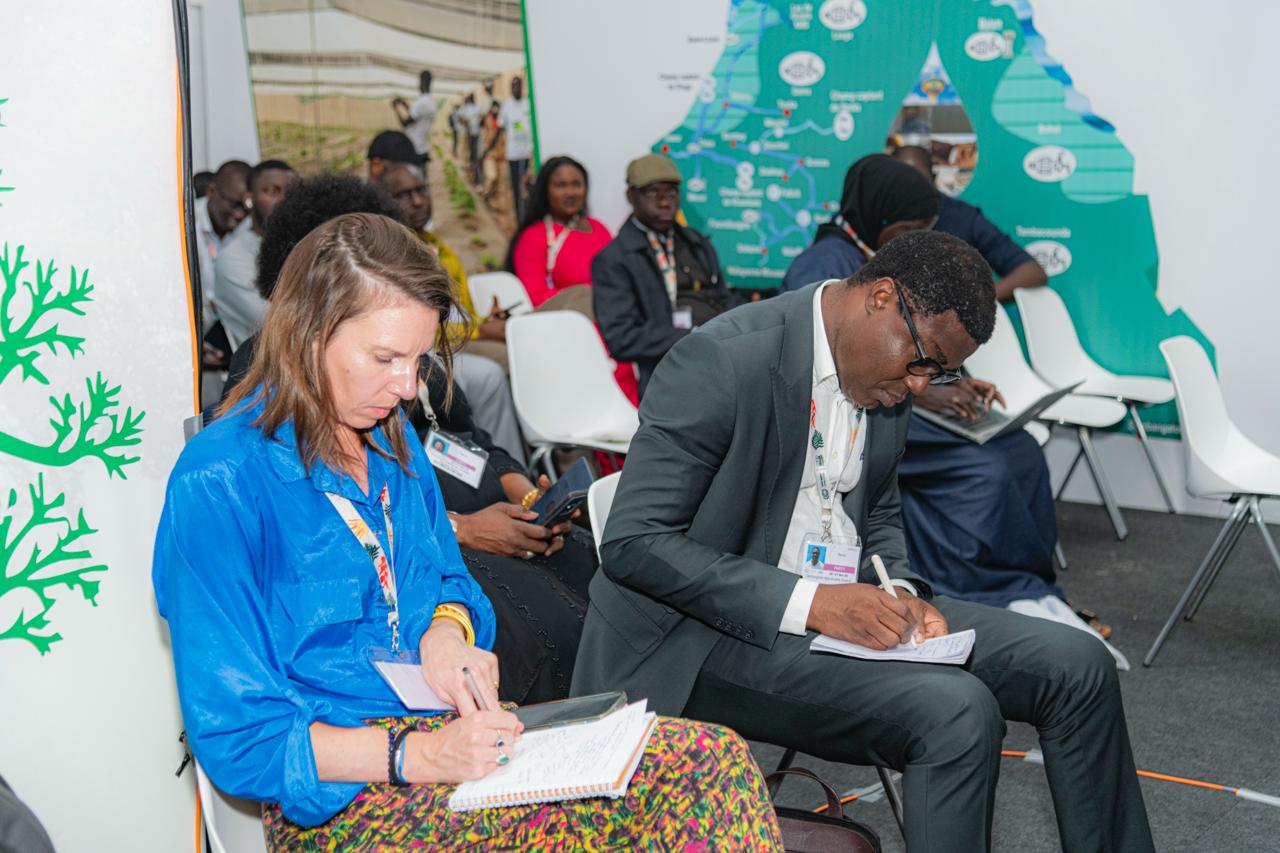
It plays a key role in urban planning, local infrastructure management, flood control, the promotion of renewable energy and support for the implementation of adaptation and mitigation projects in Senegalese cities.
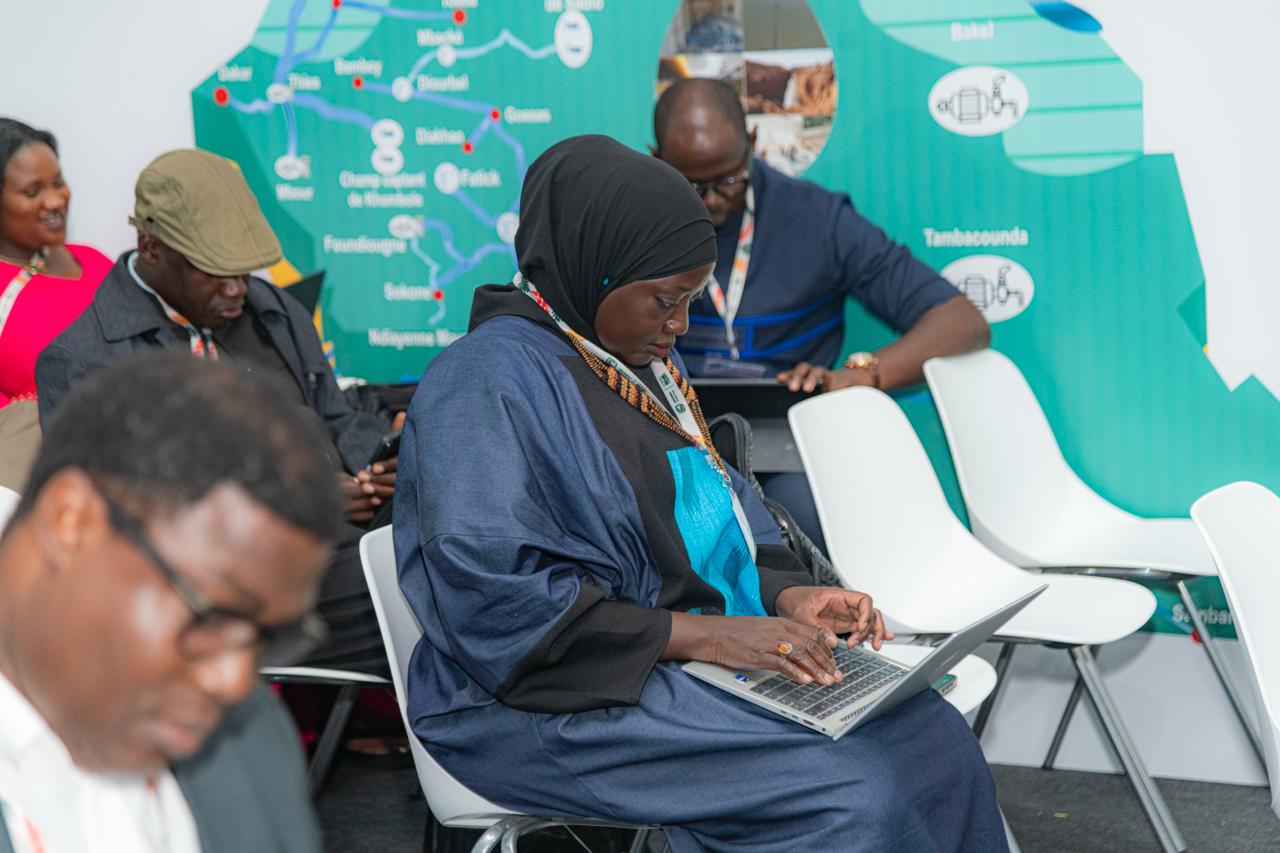
A high-level panel to accelerate climate finance
Moderated by Professor Boubacar Fall, Vice-President of the National Committee for the Fight Against Climate Change (COMNACC), the panel brought together Dr. Ousseynou Touré, Technical Advisor to the Director General of ADM; Elhadj Mamadou Ndiaye, Mayor of the Commune of Thiaroye-sur-Mer; Ms. Audrey Ramel, Director of Programs of the Global Fund for Cities Development (FMDV); Dr. Appolinaire D. Gnanvi, Director General of the National Fund for the Environment and Climate (FNEC) of Benin.
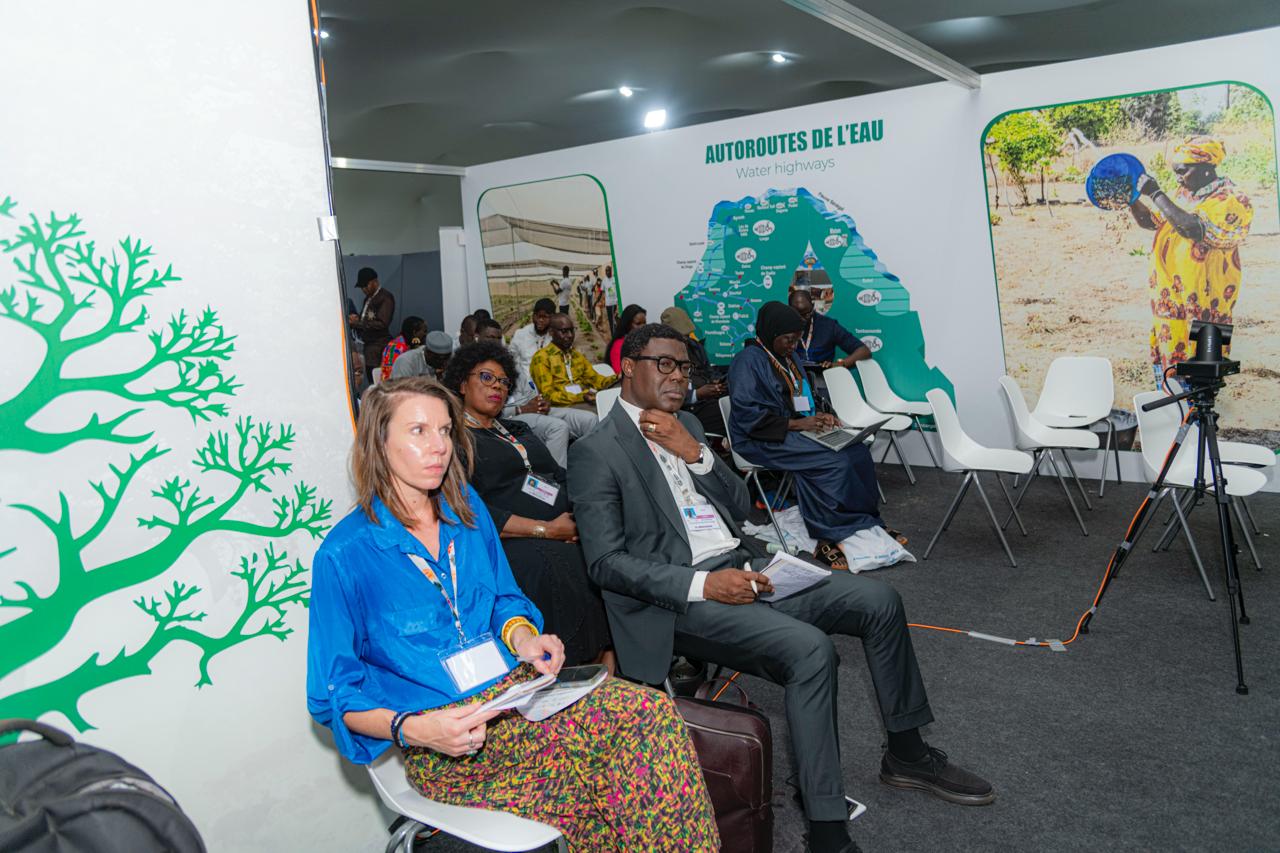
Local authorities are emerging as key players in the ecological transition. However, their capacity to act remains hampered by major constraints: a lack of qualified human resources, limited technical and institutional capacity, and above all, difficulties in accessing international climate finance. This observation is widely shared by Elhadj Mamadou Ndiaye, Mayor of the Municipality of Thiaroye-sur-Mer, who believes that "technical and institutional support in the form of coaching would be welcome." Even though some scattered initiatives have been noted, "mastering climate information is a real challenge," the Mayor explains, "within the framework of climate justification."
The discussions also focused on emerging innovative solutions, and the role of different actors (state, donors, private sector, civil society) in the implementation of decentralized climate finance.
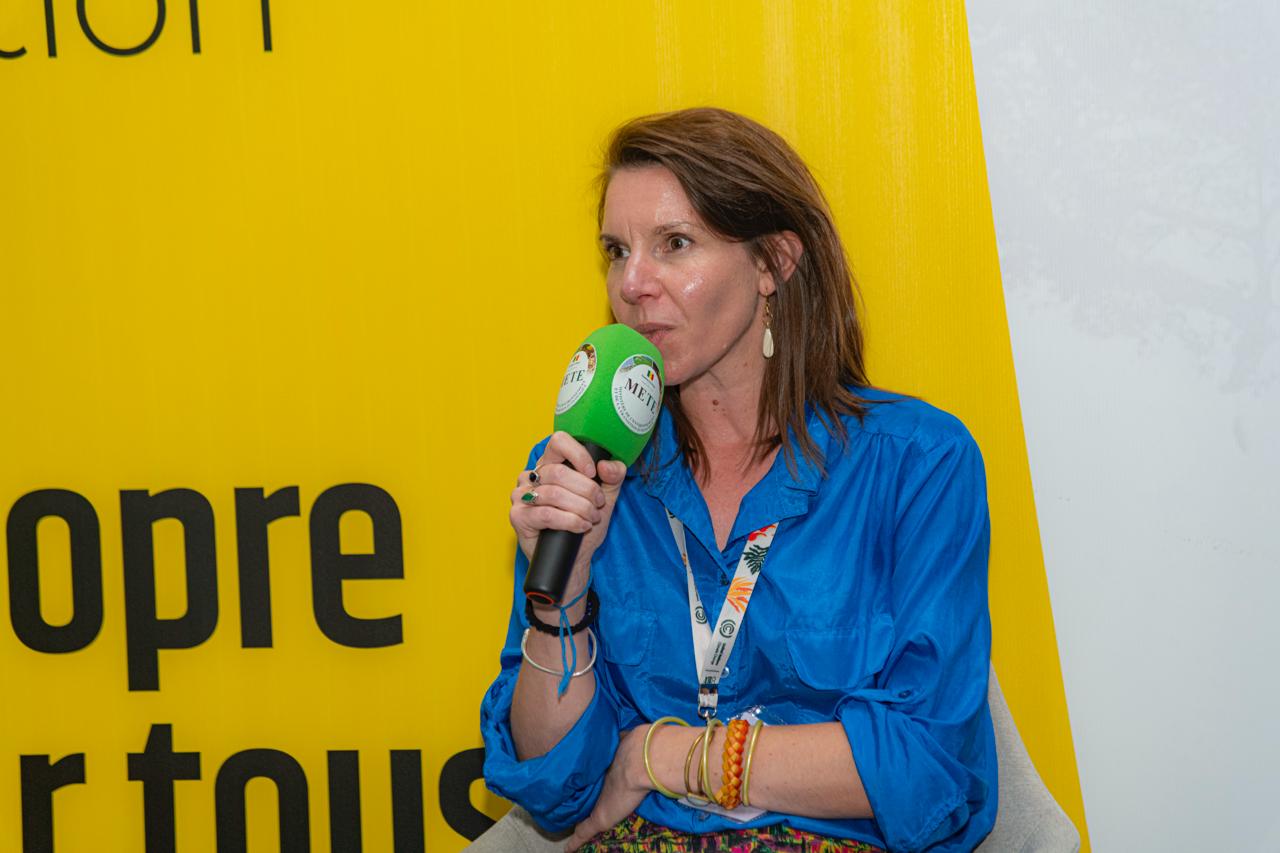
According to the representative of the Global Fund for Cities Development (GFC), the issue of decentralized climate finance must be approached from the perspective of strengthening the capacities of local actors, but above all, of decentralized cooperation. The latter makes it possible to mobilize green partnerships that are open to local areas.
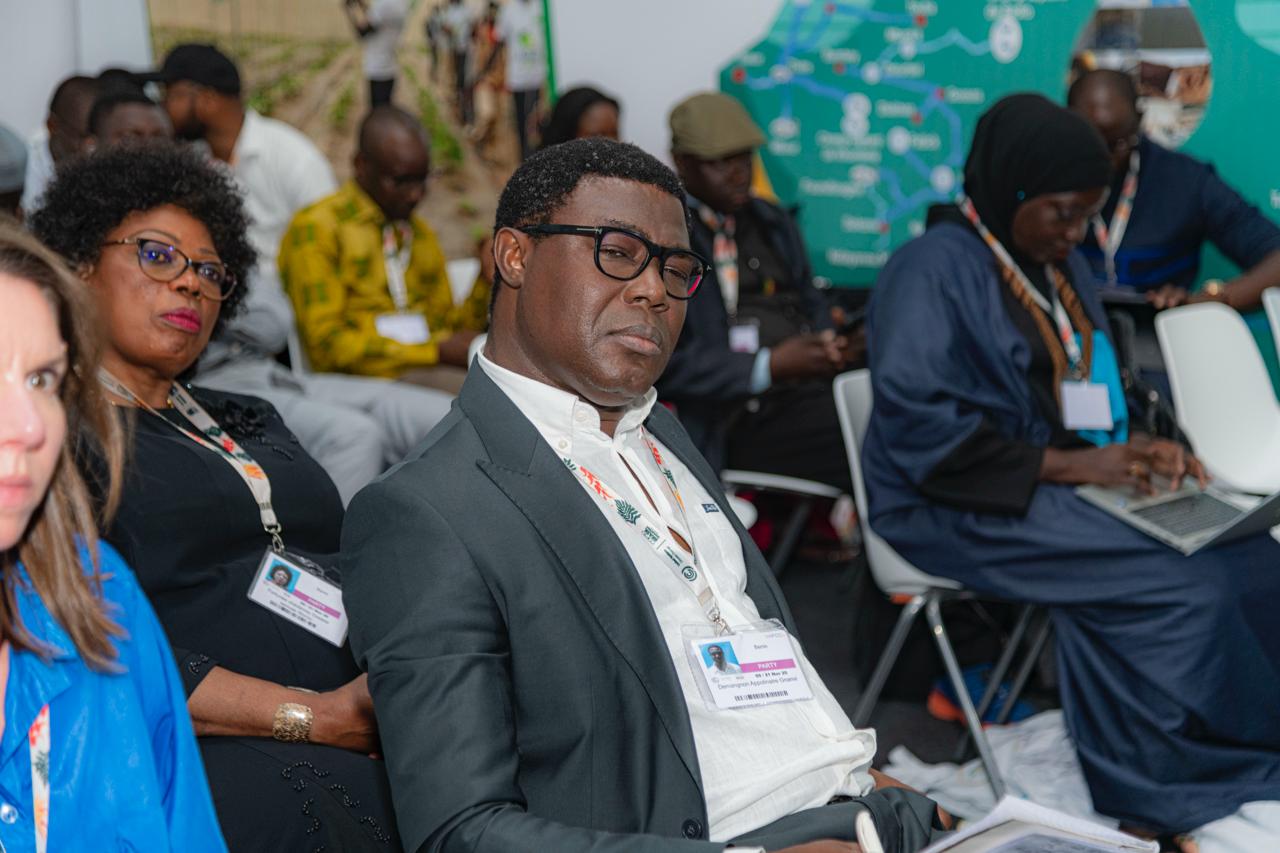
PACASEN, a laboratory for innovation
The Support Program for Municipalities and Urban Areas of Senegal (PACASEN), implemented by ADM with support from the World Bank and the French Development Agency (AFD), provides a relevant framework for experimenting with local governance tools that integrate the climate dimension. The objective is clear: to structure an effective and inclusive local climate finance ecosystem capable of transforming local adaptation strategies into bankable projects. According to Dr. Ousseynou Touré, the insufficient optimization of the management of a four-input value chain constitutes the main obstacle for local authorities in mobilizing financing for climate action and the ecological transition. "This involves fragmented and incomplete data, biased information, ephemeral knowledge, and nascent skills," he argues.
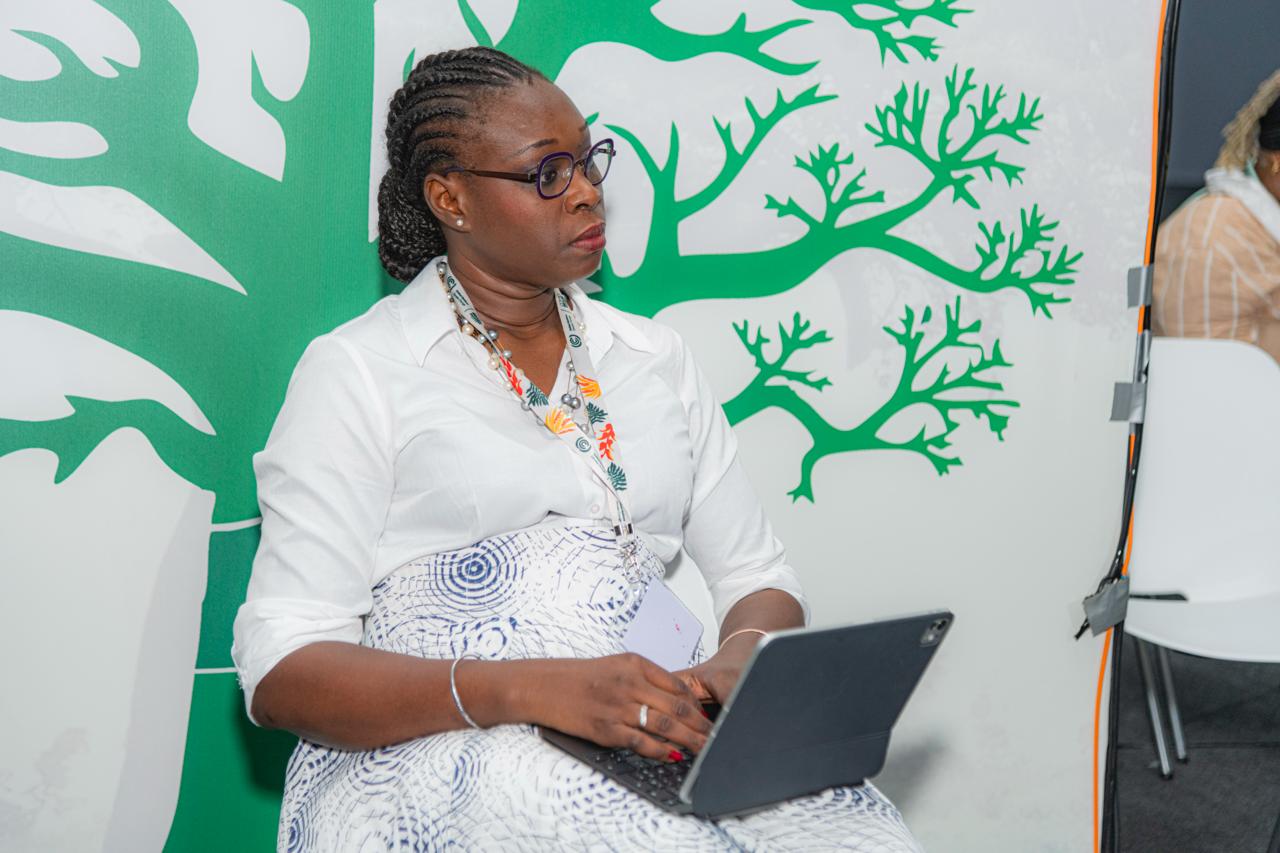
Key issues discussed include the difficulties local authorities face in accessing climate finance and proposed solutions such as adapting financial mechanisms to local realities, strengthening the capacity of municipalities to design financeable climate projects, and the most promising innovations to democratize access to climate finance.
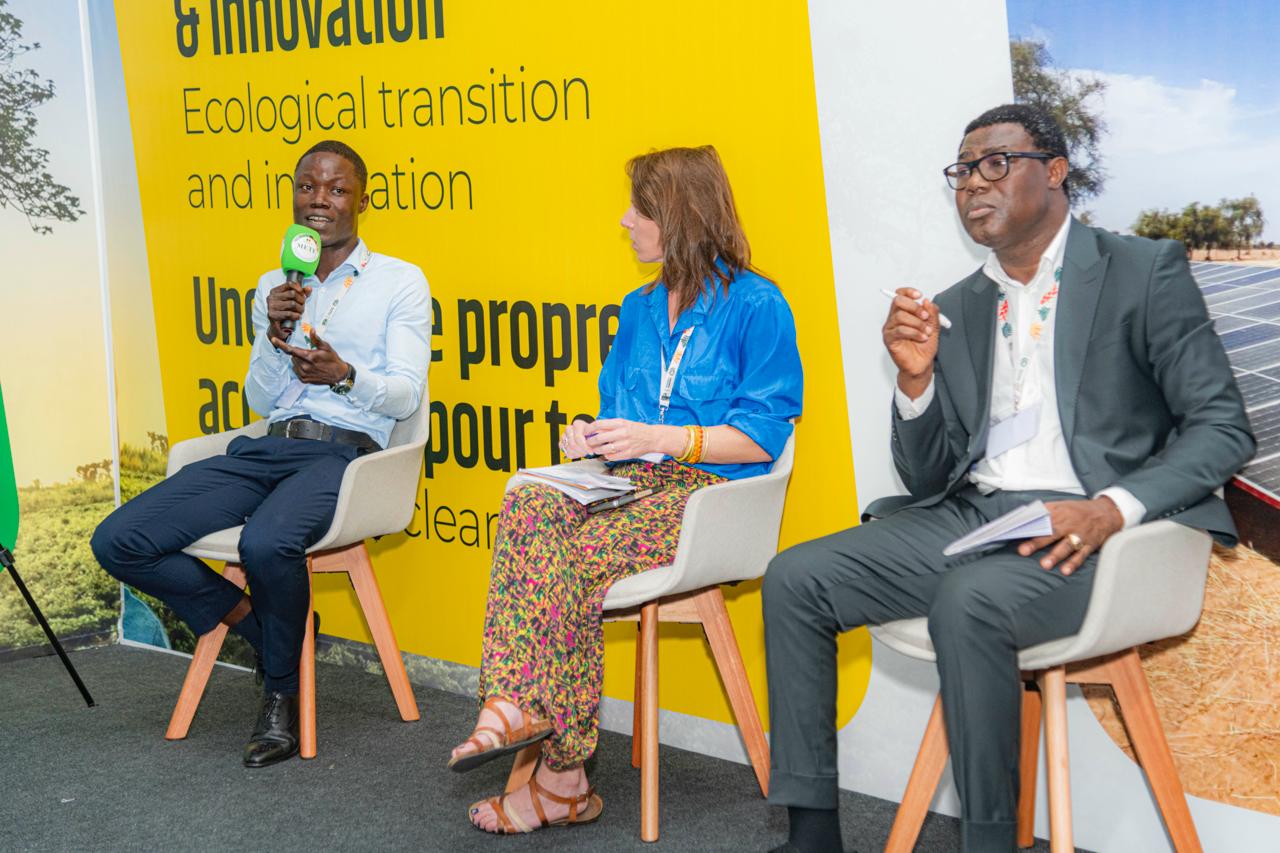
Cross-border lessons
The participation of Benin's National Climate Finance Fund (FNEC) in the panel illustrates the importance of sharing experiences among African countries, as well as South-South cooperation. The mechanisms developed by Benin to facilitate municipalities' access to climate finance could inspire Senegal in its approach to decentralizing climate finance. According to Dr. Gnavi of FNEC Benin, "his country has experimented with and successfully implemented the 'Local Mechanism,' internalizing a local framework for structuring climate finance long ago, before considering accreditation to the Green Climate Fund (GCF), with a view to building real resilience at the local level in Benin."
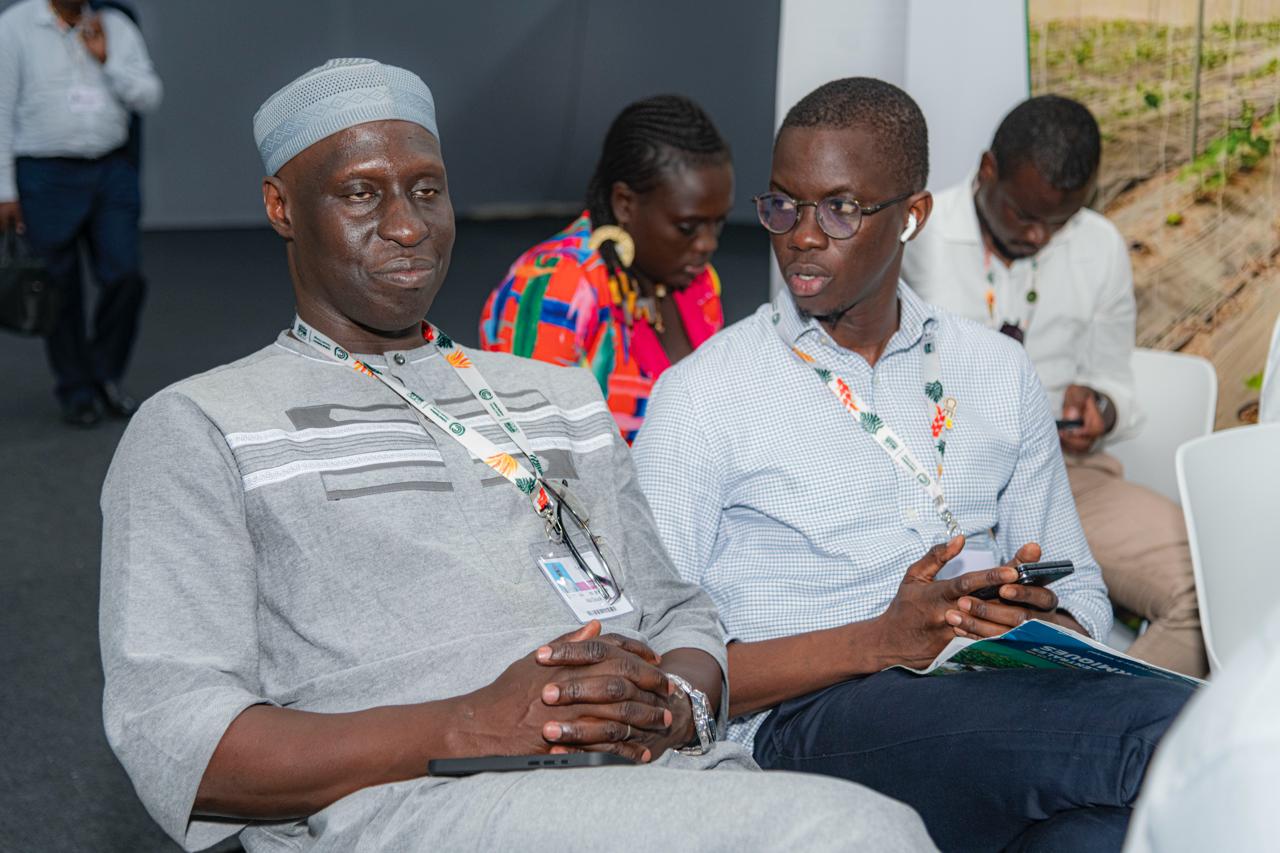
Perspectives and recommendations
This panel is a continuation of Senegal's commitments, which included developing its Nationally Determined Contribution (NDC) in 2020 under the Paris Agreement, and working on its National Adaptation Plan (NAP) since 2015. The recommendations stemming from this meeting aim to strengthen the resilience and climate performance of Senegalese territories by facilitating local communities' access to the resources needed to address climate challenges.
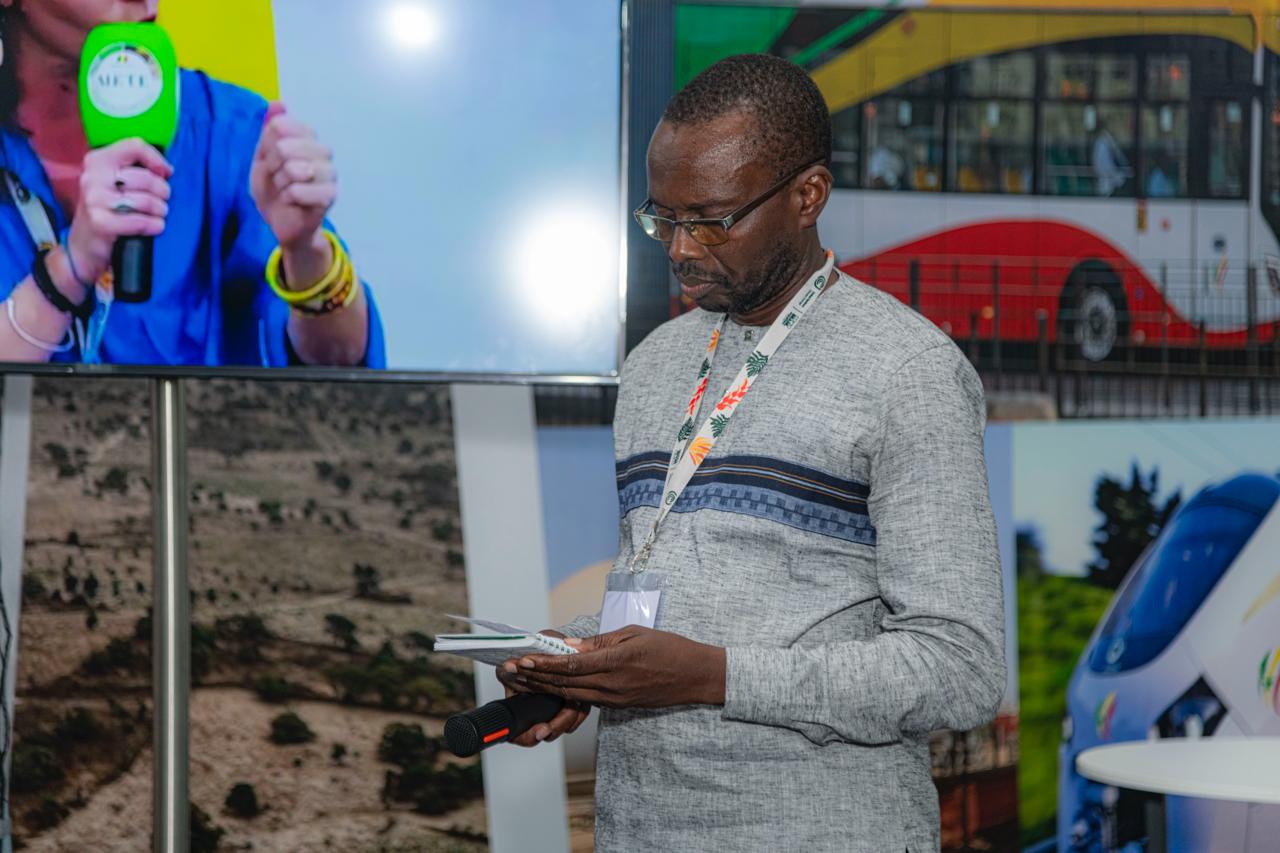
As COP30 continues, this ADM initiative underlines the importance of thinking about the ecological transition at the local level, where the impacts of climate change are most visible and where solutions need to be most concrete.
Commentaires (0)
Participer à la Discussion
Règles de la communauté :
💡 Astuce : Utilisez des emojis depuis votre téléphone ou le module emoji ci-dessous. Cliquez sur GIF pour ajouter un GIF animé. Collez un lien X/Twitter ou TikTok pour l'afficher automatiquement.